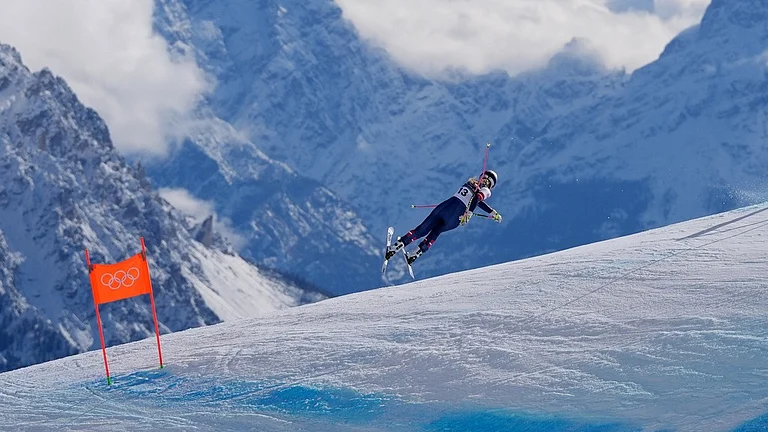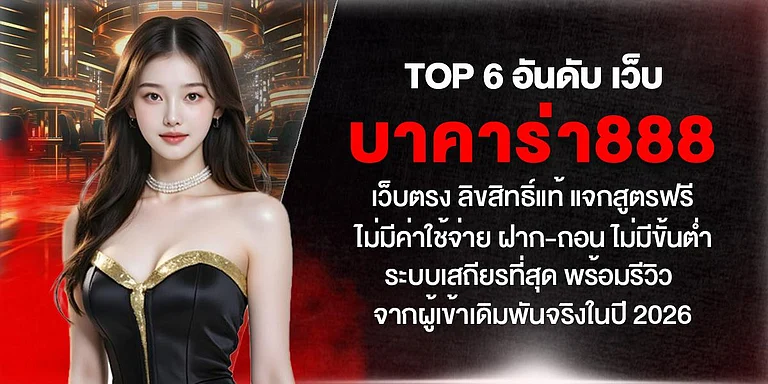The Central Vigilance Commission (CVC) was set up as a department of the government of India in the 1960s. It was functioning as an organization to advise government on all matters relating to corruption in public services and lack of integrity vis-à-vis public servants. Subsequently, in the Hawala case in 1997, the Supreme Court directed that the CBI should be freed from government control and that the CVC will have superintendence over the functioning of the CBI and it will also be granted statutory status so as to make it independent of the government. Thereafter, section 8 1 (a) & (b) of the Central Vigilance Act, 2003 gave supervisory jurisdiction over the CBI to the CVC. It also granted statutory status to the CVC and provided for a procedure for appointment of the members of the CVC by a Committee comprising of the Prime Minister, Home Minister and the Leader of the Opposition in the Lok Sabha.
Subsequently, in 2005, after the murder of Satyendra Dubey, who had blown the whistle on corruption in NHAI, the Supreme Court directed that the Government put in place either an Act or at least administrative procedures for entertaining complaints of whistle blowers and protecting them from victimization. Consequently, pending legislation on the subject, the government issued an administrative order known as the Public Interest Disclosure and Protection of Informer (PIDPI) resolution by which CVC was empowered to entertain complaints from a whistle blower from any part of the Central government or its Public Sector Undertakings. It also empowered the CVC to get those complaints investigated through any agency of the government and also issue suitable directions to the government for the prosecution of officers. It further empowered the CVC to issue directions to the government for the protection of whistle blowers from victimization and for providing security to those persons.
Through all these processes, the CVC came to be regarded as the main institutional bulwark in this country against corruption. In addition to its original function of advising government on all matters relating to corruption in public services and lack of integrity vis-à-vis public servants, the CVC also acquired the power to supervise the functioning of the CBI in its investigations and also to entertain complaints by whistle blowers and to take suitable action by way of prosecuting corrupt officers found in those cases and protecting the whistle blowers.
Unfortunately, over the last few years, as the following examples and case studies would show, the CVC has failed to live up to the expectations of acting as an institutional bulwark against corruption. In particular, it has failed to appreciate its powers and functions to supervise the functioning of the CBI and its role as an institution to whom whistle blowers could turn for action against corrupt officers or for protection against victimization. What can be seen is the following:
- In a large number of corruption cases by public servants supported by documents sent to the CBI for investigation, the CBI even refused to register an FIR and investigate the matter. Despite repeated written complaints being made to the CVC and requesting the CVC to exercise its supervisory jurisdiction over the CBI to get it to investigate those cases, the CVC has failed to exercise its jurisdiction vested by the CVC Act.
- One example of such a case is the Scorpene Submarine deal case, where the Citizens Forum Against Corruption comprising of a number of highly respected retired government officers, like the former Navy Chief Adml. Tahiliani, former Ambassadors of the Government of India, former Secretaries of the government, etc., wrote to the CBI to investigate the corruption in the Rs.18000 crore Submarine purchase contract in which large amount of evidence and documents were published by Outlook magazine. The CBI refused to register an FIR and the CVC did not direct the CBI to do so, despite it being a case crying for investigation.
- Similarly, in the complaint against former Chief Justice of India, Justice Y.K. Sabharwal, again, despite detailed written complaints to the CBI based on documentary evidence by respectable persons, no FIR was registered nor any investigation made by the CBI. Again the CVC did not use its supervisory jurisdiction over the CBI to get it investigated.
- More recently, in another case involving a telecom licence given to Swan Technologies, there was compelling evidence to suggest that the licence was given for a bribe by transferring shares of the company to benami companies. No FIR was directed to be registered and the CVC merely asked the CVO of the Department of Telecom itself (the very Department against whom complaint had been made) to investigate the same and give a report to the CVC. It may be pointed out that this was a case where a company having an original asset of one crore (to which Reliance had Rs.1000 crore by way of preference shares), was transferred for a few crores to a Mauritius Company with unknown owners just before the licence was granted. With days of the grant of a telecom licence and spectrum, it was sold off to a gulf based company for about 10,000 crores.
All this has defeated the express intention of the Supreme Court on the basis of which this supervisory jurisdiction over the CBI was vested with the CVC.
CVC's role under the whistle blower protection notification
Several hundred complaints under the Whistle Blower Protection Notification have been received by the CVC. Many of these were very serious complaints involving serious acts of corruption by very senior officials in various government departments or Public Sector organizations. However, it appears that in virtually none of those cases, has the CVC recommended any serious action against any senior officers complained against. Not only this, in a large number of cases, the whistle blower was subjected to severe victimization by way of charge sheets, suspensions and transfers. In virtually no case, has the CVC ordered the government departments/PSUs to stop the administrative harassment/victimization of the whistle blower even when it was absolutely clear that the victimization was mala fide and was taking place only on account of the whistle blown by the person. In fact, in some of these cases, the CVC has gone so far as to align itself with the senior officer/government department/PSU against whom the whistle blower had made these complaints. In a case, where a whistle blower has complained against the Chairman of the Central Bank of India, the CVC not only did not take any action against the Chairman nor did it protect the whistle blower from victimization by way of suspension/repeated charge sheeting/transfer, etc., but went further to ask the Central Bank to engage a common lawyer to defend the CVC in the petition filed by the whistle blower in the High Court.
The pattern which emerges regarding the manner in which the CVC dealt with the whistle blowers is as follows:
In the beginning, the entire attention of the CVC was focused on routinely protecting the identity of the whistle blower and not processing the complaints further by investigating the charges, etc. Later, the manner in which the complaints were processed was to send them to the CVO of the same department against whom the complaint had been made, which in turn sends the complaint to the person against whom the complaint was made for his response. Usually, on the response of the officer against whom the complaint had been made, the complaint was closed without even referring the response to the whistle blower for pointing out any misleading or false information given by the complained in his defence. Usually, the CVOs of the various departments are officers within the same department who are working under more senior officers in that department and their ACRs are also written by these senior officers. It is, therefore, unrealistic to expect these CVOs to find fault with their bosses who would be writing their ACRs. However, despite this, this kind of routine procedure has been adopted by the CVC to get white-washing reports from the CVOs and close the complaints on that basis without any independent investigation and without even referring the response back to the whistle blower.
The whistleblowers have usually been victimized by their bosses against whom the complaints were made, usually by way of departmental chargesheets and transfers. No action has been taken by the CVC to protect them from such victimization on the basis that taking departmental action against the employees is the prerogative of the department. This attitude has rendered the power given to the CVC by the whistleblower notification into a dead letter.As a result of inaction on the part of the CVC, the whistle blower complaints have been coming down.
No of Whistle Blower complaints received by the CVC
- In 2006- 338
- In 2007- 328
- In 2008- 276
It is clear that the CVC has failed to live up to the expectations of it functioning as an institutional bulwark against corruption. The reasons appear to be that by and large persons being appointed as Vigilance Commissioners are former bureaucrats from various ministries and departments. Unfortunately, it appears that despite the statutory status given to the CVC to enable it act independently of the government, most of these members have not been able to outgrow their bureaucratic servility to their political masters. Perhaps, the problem also lies in the choice of the bureaucrats chosen to become members of the CVC. It appears and stands to reason that neither the present government nor the leader of the opposition (who is an important member of the previous government and aspiring to become a member of the future government) are interested in having a CVC which will function as a true watchdog or bulwark against corruption. Since the leaders of the present government or the previous government or their colleagues would be the subject matter of investigations and prosecution for corruption, if the CVC were to fulfill the role assigned to it and expected of it by the Supreme Court, it appears that they want a servile and submissive officer as Vigilance Commissioner who would deal with corruption cases in a routine manner and not as a vigilant and aggressive watchdog against corruption. In fact, similar problem has cropped up in the appointment of other statutory authorities like NHRC.
Today, when the government is in the process of drafting a Whistle Blower Act, perhaps the time has come to revisit the method of appointment of members of the CVC and the transparency and methodology of these appointments. The time has perhaps come to put in place a mechanism to free such appointments from the influence of those persons who are likely to be the subject matter of the anti-corruption exercise of the CVC and also put in place a system of selection which guarantees transparency and some degree of public participation.
Prashant Bhushan is Advocate, Supreme Court of India, V.K. Shunglu is former Comptroller and Auditor General of India, Arvind Kejriwal is an RTI Activist and Madhu Bhadhuri is former Ambassador, Government of India.


























